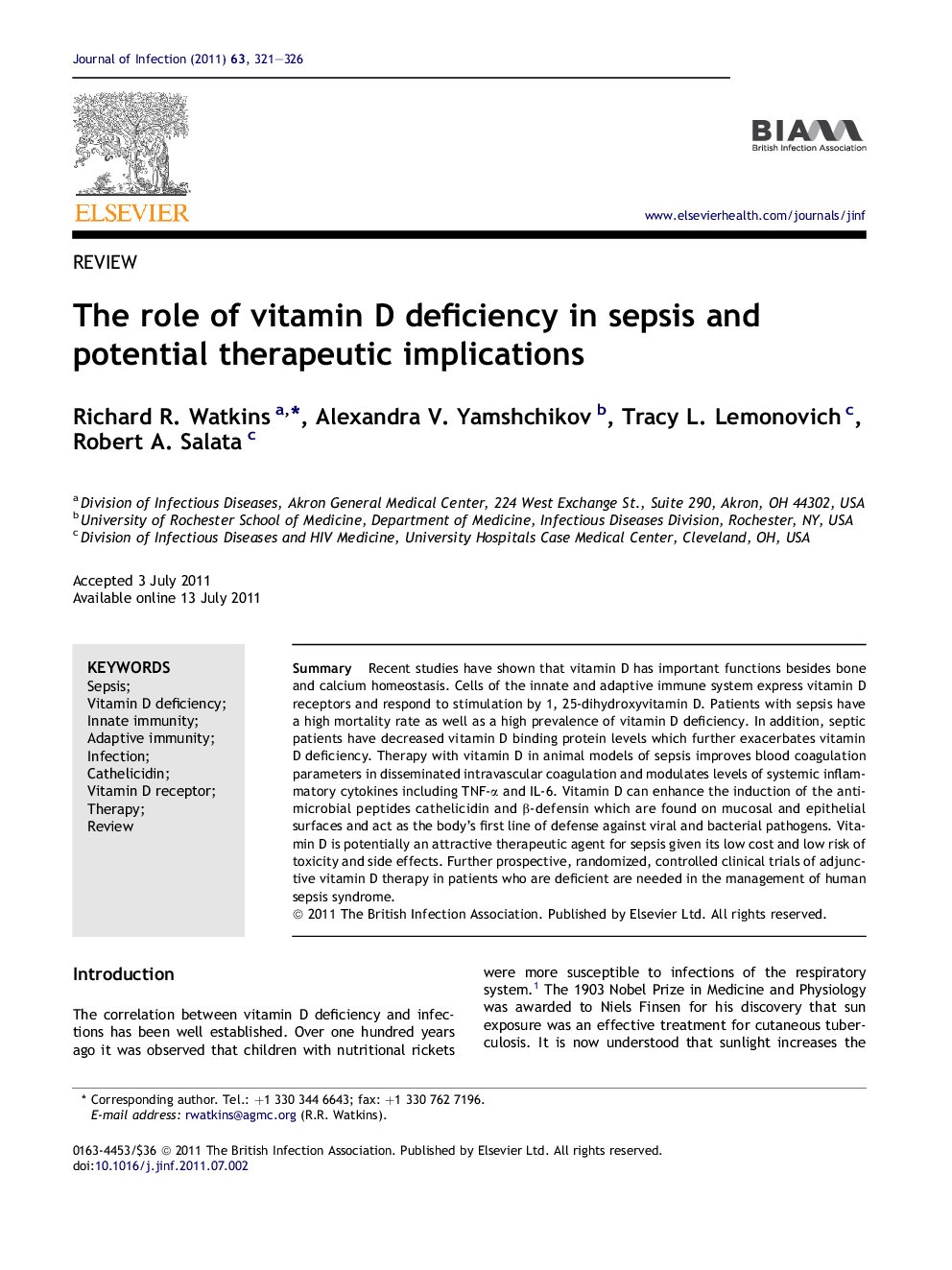| Article ID | Journal | Published Year | Pages | File Type |
|---|---|---|---|---|
| 3375327 | Journal of Infection | 2011 | 6 Pages |
SummaryRecent studies have shown that vitamin D has important functions besides bone and calcium homeostasis. Cells of the innate and adaptive immune system express vitamin D receptors and respond to stimulation by 1, 25-dihydroxyvitamin D. Patients with sepsis have a high mortality rate as well as a high prevalence of vitamin D deficiency. In addition, septic patients have decreased vitamin D binding protein levels which further exacerbates vitamin D deficiency. Therapy with vitamin D in animal models of sepsis improves blood coagulation parameters in disseminated intravascular coagulation and modulates levels of systemic inflammatory cytokines including TNF-α and IL-6. Vitamin D can enhance the induction of the antimicrobial peptides cathelicidin and β-defensin which are found on mucosal and epithelial surfaces and act as the body’s first line of defense against viral and bacterial pathogens. Vitamin D is potentially an attractive therapeutic agent for sepsis given its low cost and low risk of toxicity and side effects. Further prospective, randomized, controlled clinical trials of adjunctive vitamin D therapy in patients who are deficient are needed in the management of human sepsis syndrome.
